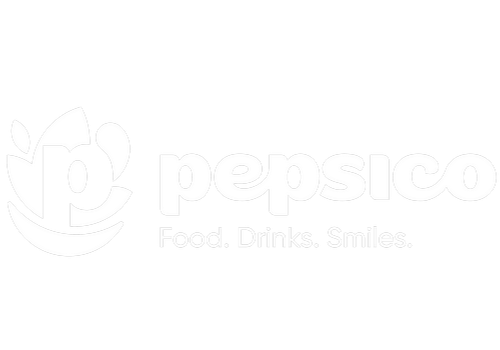On 9 September 2021, the Ukrainian parliament supported in the first reading a revision of its legislation on medicines, initiating a two-week period for submitting amendments to the basic version. Several months from now, after extensive parliamentary work on the second version, Ukraine's parliament is expected to proceed with the second reading and ultimately replace the nation's out-dated 1996 Law on Medicines.
The New Draft Law now enjoys a priority position in the political agenda:
- On 18 August 2021, the Ukrainian President approved the Decision of the National Security and Defence Council (NSDC) on healthcare, which has prioritised the New Draft Law as a move to align domestic legislation in the pharma sector with EU legislation.
- Moreover, the key sponsors of the New Law have presented it as a tool to start negotiations with the EU on the Agreement on Conformity Assessment and Acceptance of Industrial Products (ACAA) for medicinal products and free trade in this sector. The NSDC Decision defines negotiations with the EU over the ACAA as a key healthcare priority for Ukraine.
Experts are now debating whether the first version of the New Law is a move in the right direction or a mistake. It is too early to make predictions on the final version of New Law and the result of the second reading.
We see, however, strong progress in many directions and many potential threats and challenges for market players and the pharmaceutical regulatory system. Overall, we still believe that an open and professional dialogue and further updating of the draft New Law could bring EU-like pharmaceutical legislation to Ukraine. Otherwise, the legislation may end up a redecoration of the current regulatory framework with complications for businesses, risks for patients, and still no chance to discuss the ACAA and sectoral free trade with the EU.
Positive expectations
The following are the positive and constructive points contained in the draft:
- Alignment with Directive 2001/83/EC
- The New Law to a significant extent correctly reflects and is aligned with many Directive 2001/83/EC provisions and definitions. Moreover, the New Law covers many areas currently lacking sufficient regulation in Ukraine, including advanced therapy medicinal products, compassionate use, promotion of medicines (other than advertising to the general public), etc.
- Improved procedure of marketing authorisation
- The New Law creates marketing authorisation procedures that are significantly aligned with the EU. In a positive development, it replaces the existing practice of taking a single administrative decision by the regulatory body on collectively granting marketing authorisations, renewals and variations to dozens or even hundreds of individual applicants or marketing authorisation holders (MAHs) with individual decisions concerning each individual product. Nevertheless, there is room for improvement: the overall timeframes for the procedures have yet to be aligned while data protection and exclusivity rules are of significant concern (see below for details).
- Web-portal
- The New Law calls for the creation of a comprehensive web-portal on medicinal products covering details on regulatory procedures, regulatory decisions, information for the sponsors of clinical trials, the applicants for marketing authorisation and the MAHs. This is a positive step, which adds transparency to the regulatory system and makes interactions between the industry and regulators more efficient.
- Compassionate use
- The New Law finally provides for detailed regulation of compassionate use of medicinal products. Currently, the regulation in this area is insufficient. Hence, companies and doctors lack the motivation to take the risk of providing access to products. This, in its turn, leads either to medical needs remaining unmet or the illicit trade in badly needed medicines.
- Promotion (other than advertising)
- The New Law reflects most of the Directive 2001/83/EC provisions on promotion of medicinal products to healthcare professionals. Currently, the legislation only regulates advertising of medicinal products. However, the term advertising applies only to communications targeting an unidentified audience, effectively leaving individual communications unregulated. Thus, professional bodies such as European Federation of Pharmaceutical Industries and Associations (EFPIA) often complain that their members face discrimination in Ukraine since their Ukrainian competitors face no such binding restrictions. The New Law, however, still lacks relevant provisions on the promotional targeting of groups (including patients) other than healthcare professionals (HCPs).
- Falsified medicines
- The New Law corrects the irrelevant definition of falsified medicinal products and sets clear and strict rules and responsibilities for identifying counterfeits in the supply chain. While there is still a lot of work to do at the level of criminal and procedural legislation, the New Law as it now stands empowers anti-counterfeiting and anti-illicit trade agencies.
Possible threats and challenges
- Definitions
- Some definitions remain unaligned with EU regulations. The most critical example is the definition of a medicinal product. Historically, active pharmaceutical ingredients (APIs) were covered by this definition solely for tax purposes (i.e. so that local pharma manufacturers could enjoy reduced VAT rates applicable to medicine imports). At the same time, APIs were effectively exempted from most regulatory and control procedures. This issue remains unchanged in the New Law, which is not consistent with Directive 2001/83/EC and the prospective of the ACAA for medicinal products.
- New single regulatory body
- The sponsors of the New Law insist that they borrowed the idea of establishing a single regulatory body for the pharmaceutical sector from EU member states. Nevertheless, market experts question the idea of replacing the existing regulatory body and quality inspectorate with a singe body from an efficiency and transparency point of view. There are few positive examples in Ukraine of establishing an independent, transparent and powerful regulatory body. Moreover, completely transforming the existing regulatory system is considered high risk.
- Local MAH requirement
- In contrast to the existing legislation, the New Law requires that either the MAHs or representatives for EU MAHs be based in Ukraine. If implemented without a sufficient transition period, this requirement could disrupt the market and possibly render those medicines inaccessible with marketing authorisations held by companies registered in the US, Switzerland, the UK and other non-EU jurisdictions. Currently, hundreds of vital medicines fall in this category.
- Data protection and exclusivity
- Despite Ukraine's obligations under the EU-Ukraine Association Agreement to align its regulatory data protection and exclusivity regulations with Directive 2001/83/EC, the New Law does not even meet its current insufficient levels of data protection and regulatory data exclusivity provisions. We can only hope this part of the draft will be renegotiated and addressed in the final version. Otherwise, this discrepancy could have a negative impact on innovation in the pharma industry, and Ukraine's ability to become a signatory of the ACAA.
- Unclear transition
- Despite the transformative nature of the New Law, its strong effect on regulatory bodies, market players, the healthcare system and patients, this version offers little clarity on the transition to the new requirements. Among other things, it sets numerous unrealistic deadlines. We expect these gaps will be addressed before the second reading.
For more information on this draft legislation and opportunities in Ukraine's pharmaceutical industry, contact your CMS client partner or local CMS expert: Borys Danevych.
Authors:
Borys Danevych, Partner, borys.danevych@cms-cmno.com
Artem Grudinin, Associate, artem.grudinin@cms-cmno.com



























